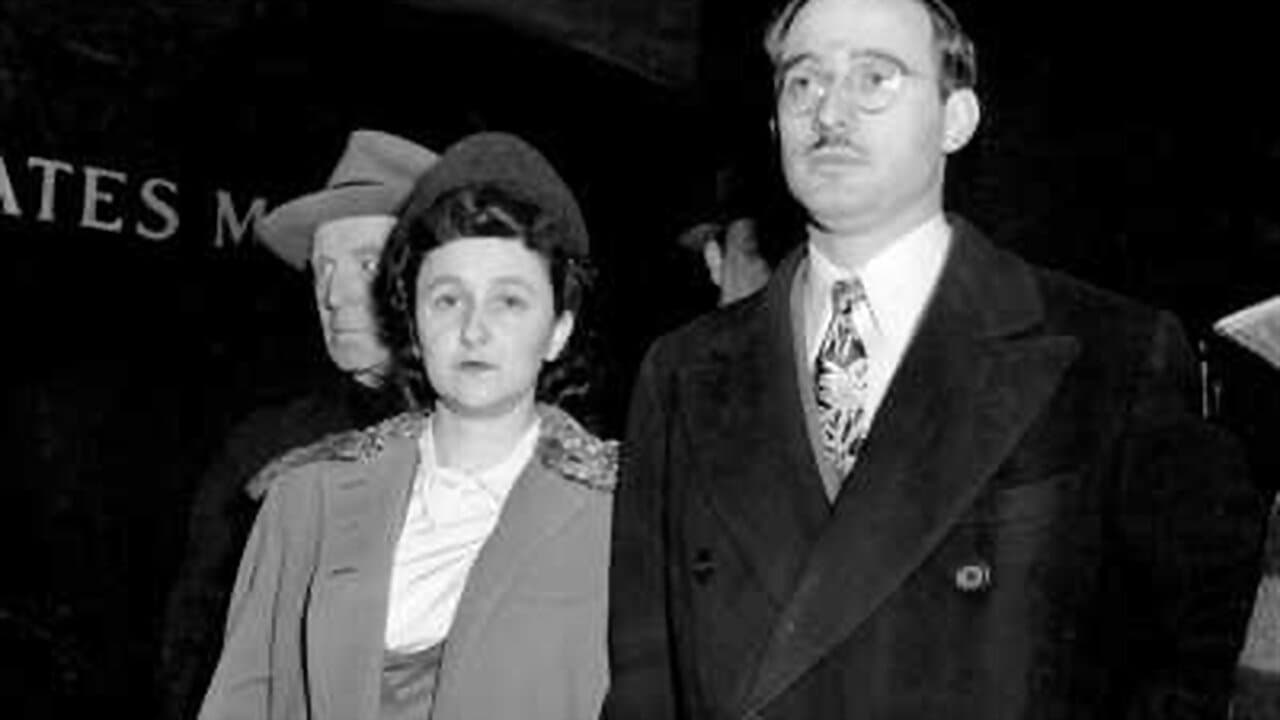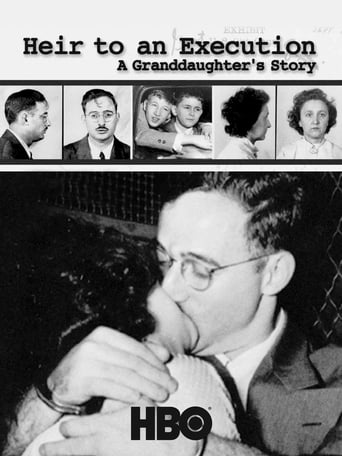

just watch it!
... View MoreGood concept, poorly executed.
... View MoreDreadfully Boring
... View MoreThere are moments that feel comical, some horrific, and some downright inspiring but the tonal shifts hardly matter as the end results come to a film that's perfect for this time.
... View MoreI'm not sure how any of the other reviews were 10, 9, 8, 7, 6, etc. "A sophomoric attempt at film-making" Amen!!! This is truly one of the worse documentaries. Not only are the facts inaccurate, distorted, and omitted, but also the credibility of the witnesses ivy meerpool interviews leaves viewers who were unsure of the Rosenbergs certain of their guilt. In short, no credibility. Especially the over reaching grand daughters with scenes of hyperbolic emotion. Growing up with biased and hearsay. Even Meerpools methods as a pseudo journalist with follow- up questions was baffling. Meerpool makes the assumption that everyone knows the story, which with this case, she shouldn't have--filmmaking 101, Journalism 101. Attempting to persuade the audience emotionally and with "evidence" that her grandparents were wrongly convicted, as a rhetorician I would use this film as a failing attempt and untrustworthy.
... View MoreThe film is compelling -- especially when the Rosenbergs' sons revisit their old family apartment -- the same kitchen sink is in place. However, there is no real settling of the central question of guilt. The family has had to question whether Julius and Ethel were "totally innocent," as they died claiming. Soviet documents made public in the 1990s list Julius as a spy with a code name. His friend Abe Osherfoff, interviewed in the extras, says that he knows Julius passed on aircraft technology to the Soviets. I am unclear as to whether Ivy Meeropol thinks then it is a proved fact that Julius committed treason. The family position seems to be, yes, Julius was probably a spy, but, no, Ethel wasn't, and no, they never gave away atomic secrets and shouldn't have been executed. Of course, all this is muddied by the witch-hunt hysteria of the times. The questions I am left with: What should have been their punishment? How can the family be sure that Julius never passed on atomic bomb specs? As devoted to the socialist dream as he was, would Julius have hesitated to pass on such information? Granting that David Greenglass's testimony was the only incriminating evidence against Ethel (and thus I agree that she was unfairly convicted) is it likely that she knew nothing of Julius's espionage? Was their silence to the end attributable to the zealotry of their politics? (I think it was, and I find it unsettling that their present-day defenders don't put this into the discussion. Julius was trying to help Stalin's regime -- is there anything noble about that?) Because they refused to talk to the FBI, even on the day of their deaths, we'll never know the whole story.
... View More7/10 This is a pretty good documentary, directed by the Rosenberg's blood granddaughter Ivy Meeropol, it covers in more detail the relationship the trial and execution has had on the family, than on the the actual trial and evidence. It is clear and objectively shown that indeed it has had an arrant multigenerational effect and most likely will continue with the director's children. However, important in the film was the revelation of information contained in the 1995 opening of classified government documents (The Venona Papers) which pretty much proves Julius' guilt (guilty of passing secrets, but nothing supposedly as serious as atomic info) and exonerates Ethel. This is presented as a surprise in the film, although this information was revealed nearly a decade before the film had been made. We spend half the film getting to this point, whereas the film would've been much more effective and in-depth if it would've started off at this point. I only say this 'cause the degree to which the guilt, or degree of guilt affects this family's identity, is highly relevant and the major theme of the documentary. This, and Morton Sobell's incomplete answers to the nature of their guilt (he was their co-defendant!!) made the film seem a little more biased than it had to be. The film also in a way martyrizes the Rosenbergs, which is fine if they were innocent, but a sad and unavoidable manipulation if not. Overall, this is slightly nitpickish on my part and anyone interested in this era of history will not be disappointed.
... View MoreIvy Meeropol has produced an emotionally moving documentary about her infamous grandparents, the Rosenbergs. I liked her work in this film, however her account of this notorious trial of Russian spies and traitors, as well as the effect on both Rosenberg boys, is purely an emotional and subjective view. Julius Rosenberg was definitely a traitor and a Russian spy, operating against the interests of U.S. national security and defense. Ethel was clearly an innocent woman. Julius was arrogant, evil, and extremely selfish not to confess information that would have saved his loving wife Ethel. Obviously, the ramifications were quite extensive as to whom was involved in that espionage ring of secret agents, having smuggled nuclear weapons technology to the Russians. Ivy Meeropol's documentary of the historical events however, never answered the most important question about her grandfather Julius' betrayal of the United States...Why? Why did he do it? What made him commit himself to his loyalty and sympathy for the Russians? Why was he so strongly compelled to give nuclear weapons secrets to the evil heinous empire of Stalin and the Soviet Communist's regime? The long term consequences of Julius Rosenberg's actions are a debacle of infinitesimal proportions. Why do you think we are now horrified that Iran is developing a nuclear weapon to use against the U.S.A.? That same stolen nuclear technology, was given to the Islamic jihadist regime of Iran, by none other than Vladimir Putin and the remnants of his mother Russia!
... View More